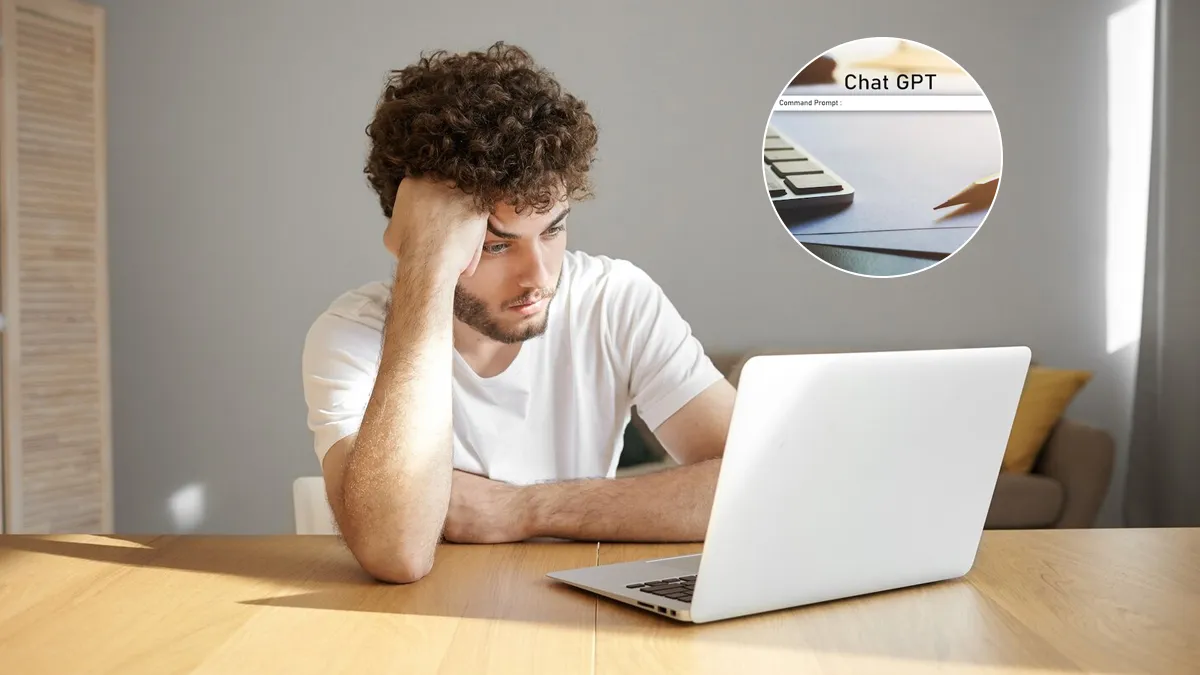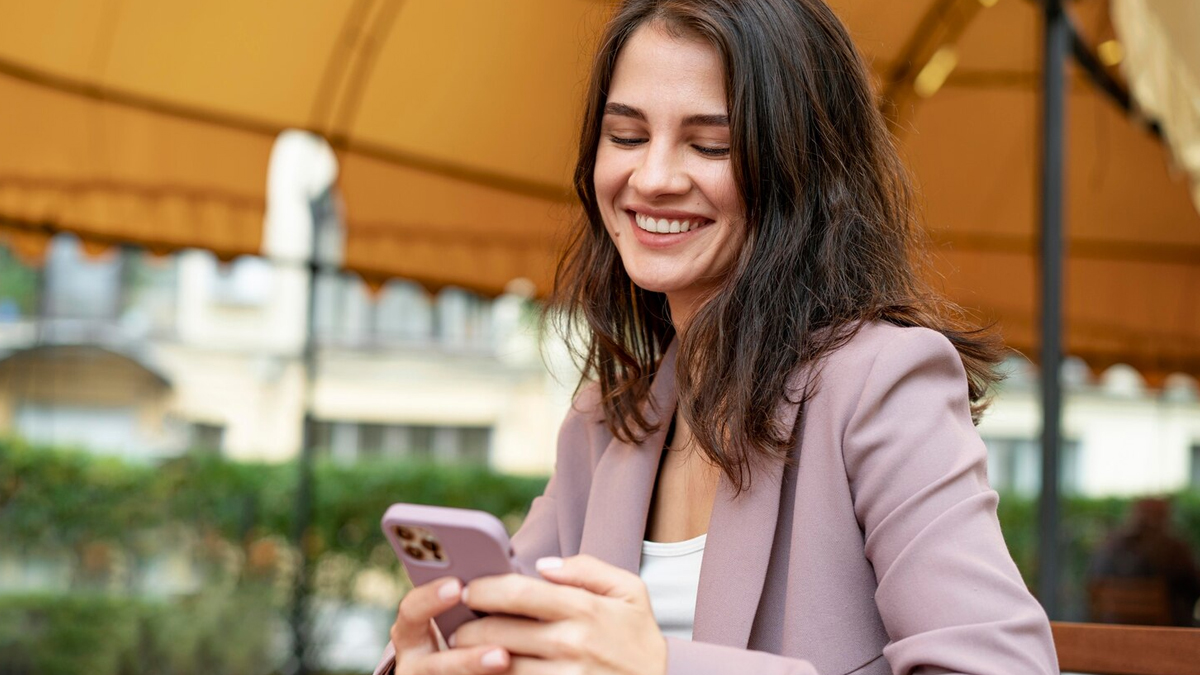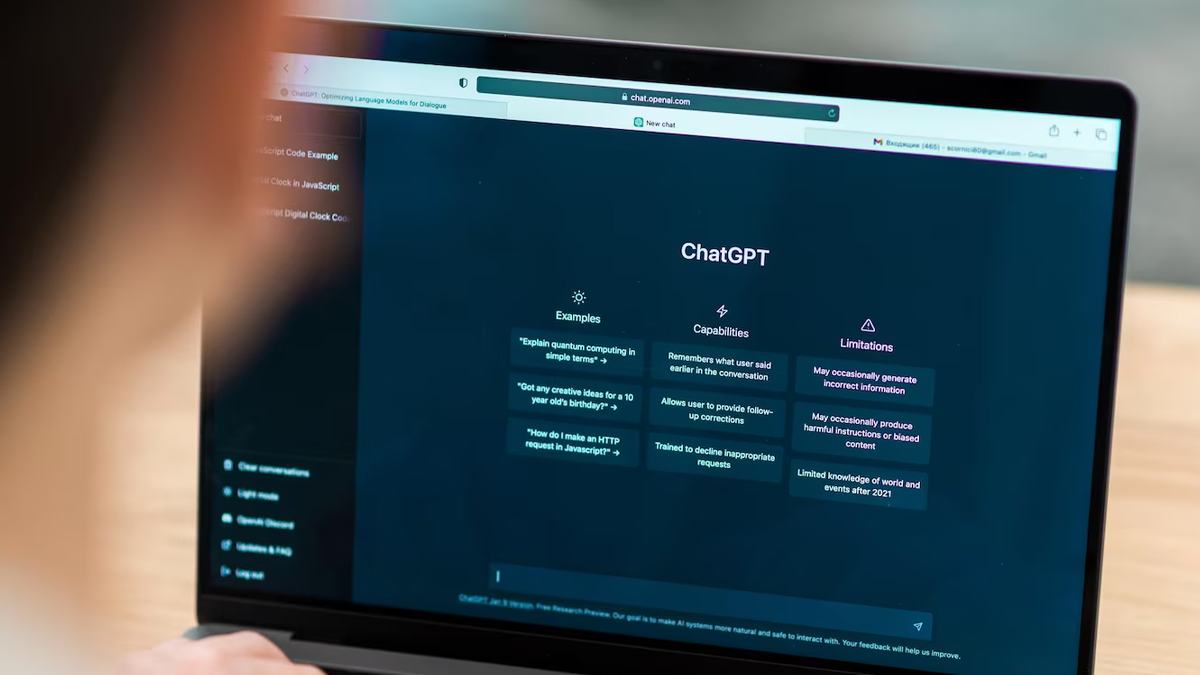
“I'm a big time overthinker, and sometimes, all you really need is someone who can listen without judgment, which is really difficult to find these days,” says Aatmza Raj. But the 29-year-old Delhi-based PR professional has finally found someone who listens to her patiently, and even offers words of comfort, without judging her. “There are moments when I sit alone, overthink, battle anxiety, and try to quiet the endless thoughts running through my head. In those times, I turn to it. I share what I’m feeling, describe the situation, and ask for suggestions. Most of the time, the guidance it provides genuinely helps me calm down and manage my thoughts better,” she further explains.
Table of Content:-
CHECK YOUR
MENTAL HEALTH

Now, if you are thinking she is talking about a person, let us tell you – you are wrong! Raj is speaking about ChatGPT. Yes, you read that right. She has found solace and her refuge in it. But Raj is not the only one. Many people, especially young adults, are turning to ChatGPT when they are overwhelmed. This OpenAI chatbot has now become a therapist to many.
The editorial team of OnlyMyHealth interacted with people who are using ChatGPT as their therapist, to discover what it is that draws them towards it. And to get an expert view on this topic, we reached out to Dr Madhurima Mondal (Consultant Psychiatrist, MBBS MD and DNB Psychiatry, MR Bangur Hospital, West Bengal). Keep reading.
‘No Judgement’: Why People Love ChatGPT as ‘Therapist’
For 28-year-old Tiyas Pal, her demanding work as a Digital Marketer in Kolkata overwhelms her. Amid her hectic work schedule, all she desires is a moment of peace, but it seems like a distant dream.
“There are times when burnout feels so overwhelming, that all I need is someone to just talk to — no judgement, no opinion or advice. During these moments, I reach out to ChatGPT. I used it a few times to vent out, to let go of my suppressed feelings. It was a good experience. But at times I did feel like ‘wait, this is just a chatbot and not a real human’. Then I told myself ‘who cares’, at least this chatbot is a good listener,” shares Pal.
“I’ve used ChatGPT as a support tool during a time when I was already in therapy, and while it offered short-term comfort, I don’t think it can replace the role of a trained therapist. It’s great for moments when you need to vent or make sense of your thoughts, the responses are non-judgmental, quick, and can sometimes help you feel heard or understood,” shares 29-year-old Delhi-based PR Manager, who prefers to keep it anonymous.

Apart from the fact that ChatGPT is ‘non-judgemental’, people have also shared other reasons that make this bot their ‘go-to-person’.
“My experience using ChatGPT as a therapist has been satisfactory. Well, satisfactory would be an understatement. The world is changing rapidly and so are life's challenges. So, I reach out to ChatGPT for the most minor inconveniences. Breakdown in the middle of work? Ask ChatGPT. Can't find a maid? Ask ChatGPT for solutions. Love life taking a toll? Ask your new digital bestie - ChatGPT!” shares Anindita Mukherjee, 32, Delhi-based Journalist.
For 26-year-old Lucknow-based writer Monica Prabhakar, using ChatGPT helped her cope better with OCD and social anxiety in her day-to-day life. “Also, there’s no taboo or fear of judgment while talking to ChatGPT and the cost is minimal; plus the result is also unbiased,” she adds.
“I get someone who listens and validates my emotions and also helps me guide through it, without costing a single penny! And its other pros are - it is available any time, and knows the exact type of therapist I need. Plus, I know my conversation will be ‘confidential’,” shares Nikita Pahwa, 24, Marketing and Creative Operation Manager, Pune.
"ChatGPT offers a safe, judgment-free space to untangle my thoughts and feelings. Sometimes, just putting emotions into words and getting a calm, structured response helps bring a lot of clarity. The best part is its availability — you can talk to it anytime, without worrying about schedules," shares Sristi Rai, 27, Delhi-based PR Manager.
‘Not a Real Therapist’: ChatGPT Comes With Its Own Cons
“The biggest risk, in my view, is that it can create an illusion of progress. If someone without any background or understanding of how therapy works uses ChatGPT for emotional support, they might not realize when to stop or when professional help is needed. It doesn’t probe or challenge your perspective the way a therapist would. For instance, I once ranted about a work issue without sharing the full picture, and ChatGPT immediately offered a straightforward solution, but it missed the emotional and behavioral layers a therapist would explore, like understanding my own role in the situation," shares the 29-year-old PR Manager.
She is not the only one. Many others too feel like ChatGPT is not all perfect, and in fact, comes with its own risks and challenges.
Prabhakar mentions that sometimes, ChatGPT can go in the wrong direction, then you have to know what advice and exercises to follow and what not, and always do cross research to be sure. Pahwa shares that she feels ChatGPT is not “really a therapist.” She adds, “There is, I feel, also a risk of data leak, and using this keeps me out of touch from human loop.”
Rai shares that ChatGPT can listen and guide, but it can’t truly empathise with you or pick up the emotional cues, like a human would. "There’s no real warmth or connection behind its words. It’s great for moments of self-reflection, emotional support, or even learning coping strategies — but for deeper emotional struggles, a trained therapist is irreplaceable," adds Rai.
Also Read: Why Men Are Less Likely To Seek Therapy? We Seek Answers
What Draws People To ChatGPT? Expert Decodes
Despite the fact that ChatGPT has potential risks, many people – especially the youth – are drawn towards it. Our expert answers why.
“ChatGPT is an easy AI tool to access for all age groups who have internet and smart phones. People suffering from mental health issues mostly hesitate to seek professional help at the initial stage. So they are relying upon chatGPT as it is free to access, and can be easily used from home. They can ask questions freely without any time limit and without being judged by others or therapists. People don't have to fight the societal stigma or their own inhibitions while seeking therapy from chatGPT,” explains Dr Mondal.
‘No Emotional Bond’: Expert Shares Risks Of Using ChatGPT as Therapist
In August this year, it came to light that a California couple are suing OpenAI over the death of their teen son. They alleged that the chatbot encouraged the 16-year-old boy to take his own life. Now, let us address the topic of the hour: is using ChatGPT as a therapist risky? Our expert answers.
“There are many risks of using ChatGPT. It is not a professional tool. It answers the queries as per its database and history given by people which sometimes may be false or incomplete. Follow up sessions could not be done by ChatGPT without which a therapy could not be completed. In case of a therapy session, rapport establishment between patient and therapist is very necessary for successful therapy. With AI, one cannot truly form an emotional bond. In case of an emergency mental health problem, AI could not be of any help. A professional therapist or psychiatrist is needed in case of emergency,” says Dr Mondal.

She adds that ChatGPT can help with information regarding what therapeutic management one can seek for some illness. “But it is difficult for an AI tool to comprehend fully about a patient's psychiatric problem without facing or interacting with the person physically. Cross-examination or clarification could not be done from it,” explains Dr Mondal.
As a word of advice, she says: “If someone wants to use chatGPT as a complement of traditional therapy, my answer is it can never be a replacement for one-on-one therapy sessions. ChatGPT can only be used to gather information regarding any therapy, before going to an actual human therapist.”
Also Read: Cupping Therapy: What Is It, How It Works, Its Potential Benefits, And What To Keep In Mind
The Final Word
ChatGPT is an easy-to-access AI tool, and is in demand among people who use it as a therapist. However, one must keep in mind that it is difficult for an AI tool to comprehend fully about a patient's psychiatric problem. Hence, it is advisable to seek professional help when battling a mental health condition.
Also watch this video
FAQ
Do people use ChatGPT as a therapist?
Yes, because ChatGPT has many qualities that people find attractive as a therapist – it's easy to access, always available, and feels anonymous and non-judgmental.Is Gen Z using ChatGPT as a therapist?
Recent research reveals concerning trends: 36% of Gen Z and Millennials are open to using AI for mental health care, compared to 28% of older generations.Can ChatGPT replace human therapists?
One of the biggest limitations is that AI lacks the knowledge, experience, and training of a real therapist.Can AI make a good therapist?
A fundamental difference between AI and human therapists is the absence of empathy.
How we keep this article up to date:
We work with experts and keep a close eye on the latest in health and wellness. Whenever there is a new research or helpful information, we update our articles with accurate and useful advice.
Current Version
Nov 07, 2025 08:25 IST
Modified By : Shruti DasNov 07, 2025 08:25 IST
Modified By : Shruti DasNov 07, 2025 08:25 IST
Published By : Shruti Das
